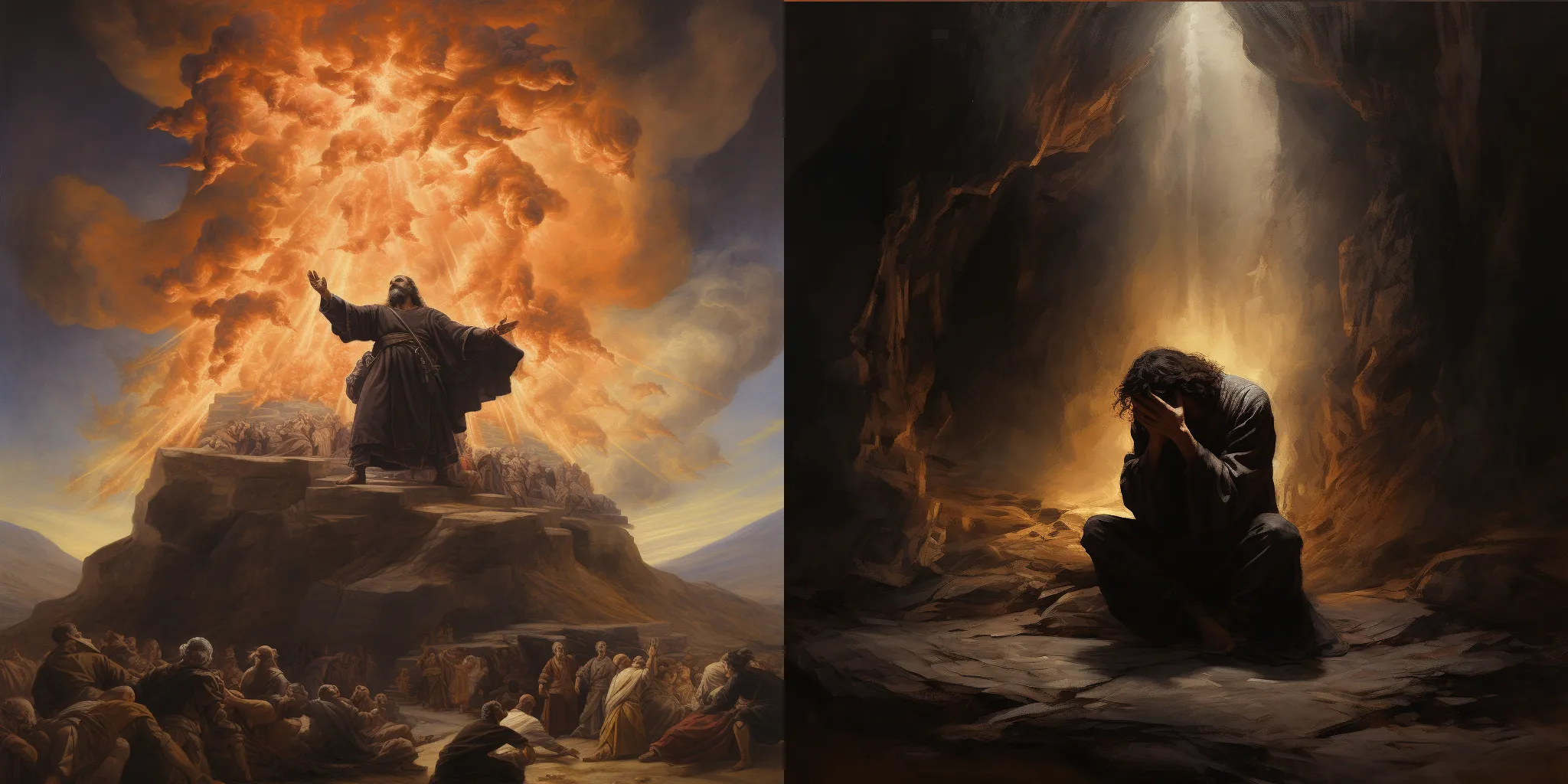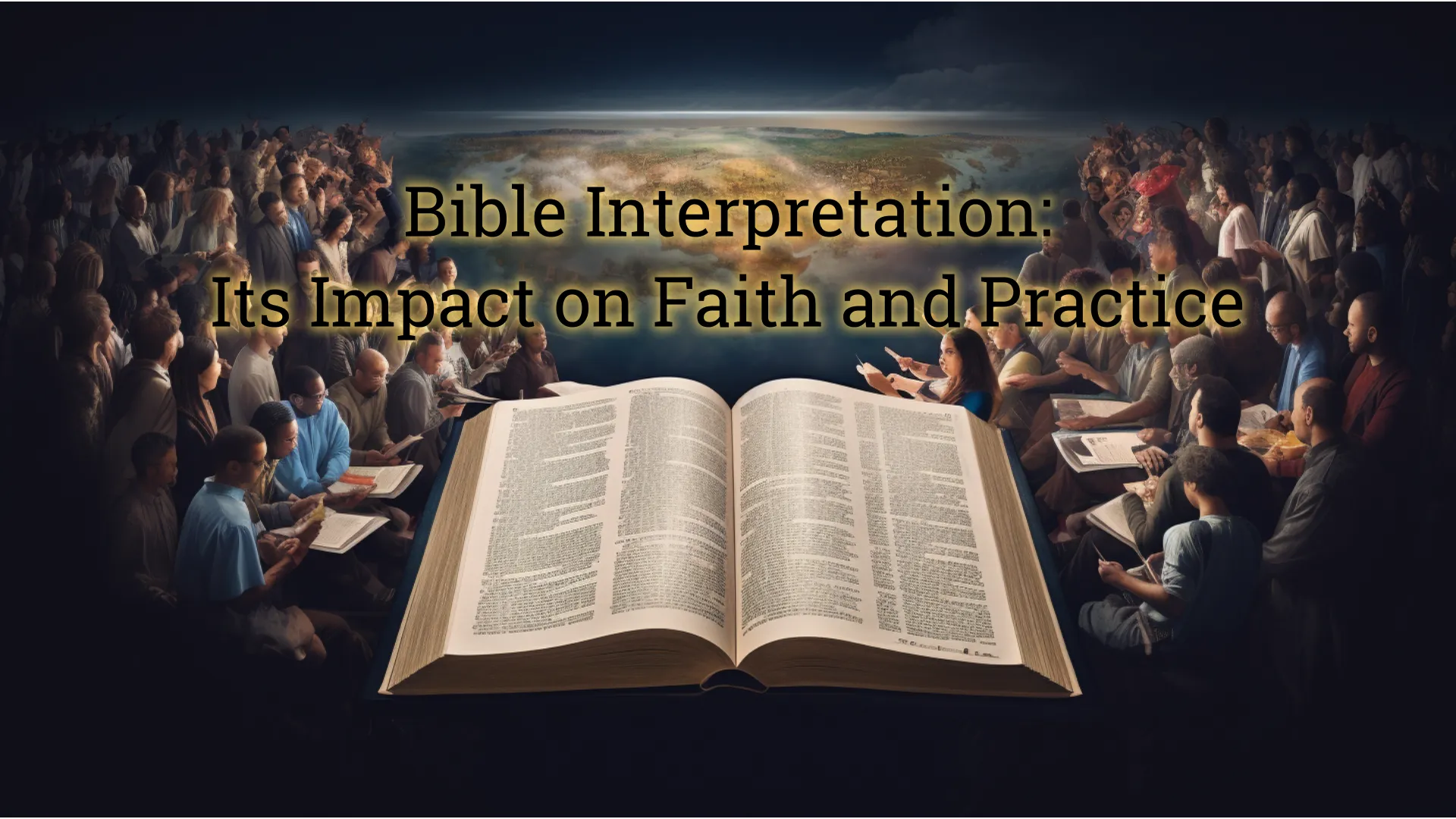The Search for Truth
Jesus answered, "My kingdom is not of this world. If My kingdom were of this world, then My servants would be fighting so that I would not be handed over to the Jews; but as it is, My kingdom is not of this realm.” Therefore Pilate said to Him, "So You are a king?" Jesus answered, "You say correctly that I am a king. For this I have been born, and for this I have come into the world, to testify to the truth. Everyone who is of the truth hears My voice.“ Pilate said to Him, "What is truth?" And when he had said this, he went out again to the Jews and said to them, "I find no guilt in Him.
John 18:36-38 (NASV)
by John Malloy
This is part two of a six-part series of articles. The rest of the series is coming soon....
Our civilization is built upon the premise that objective truth exists. Our forefathers built their lives and based their intellectual pursuits on the belief that they could identify right from wrong and that the universe could be characterized by facts that are objectively observed and proved. Many also trusted their souls in the belief that study and logic would guide them to spiritual truth. Yet these fundamental beliefs are being challenged today. Many of the brightest and best educated people have been taught that there are no objective truths and that everything is relative and depend upon the perspective of the observer. While these views are primarily found in art and literature and the “soft” sciences such as education, humanities, and psychology, they have largely replaced traditional views of history. Some have been caught up in the movement and have even tried to revise traditional views of physical and biological sciences and engineering to embrace the belief that there are no absolute facts (truths). The movement not only challenges our view of secular studies, it is a fundamental challenge to our way of looking at the morality and religion. No one will pursue truth is they do not believe that truth exists and that truth can really be found. This, perhaps, is the supreme challenge of our generation.
What we think of as Western civilization has been shaped by the fusion of Greek philosophy and Judeo-Christian beliefs. We might associate the early Greeks with their mythological tales of irrational actions of their “gods,” but even early Greek philosophers were abandoning mythological explanations for the universe by the fifth century BC. Pre-Socratic philosophers were giving preference to rational thought in their explanations of life. Socrates (470 – 399 BC) Plato (428 – 348 BC) and Aristotle (384 – 322 BC) are best known for their studies of ethics, politics and science built on this preference.
Aristotle argued that genuine knowledge, unlike mere opinion, must be eternal and universal, true in all times and places. He taught that, if something is genuinely true, it is exclusively true and cannot be false at all, just as if something is genuinely good, it is exclusively good and cannot be bad at all.[1]
Aristotle’s beliefs were not universal in the Hellenistic world. One of the philosophers who disagreed with traditional Greek thinking was Heraclitus. He argued that human understandings are always relative and limited.
Heraclitus stresses that the message is not his own invention, but a timeless truth available to any who attend to the way the world itself is. “Although this Word is common,” he warns, “the many live as if they had a private understanding”[2]
Yet, even Heraclitus’ teachings did not deny the existence of absolute truth, he just questioned the ability of humans to fully understand it.
While the Greeks focused on acquiring knowledge through reason, Jewish, and later Christian, teachers focused on knowledge provided through revelation. Prophets were the conduit for knowledge from a single God who was believed to be the creator and controller of the universe. This knowledge focused on moral and spiritual principles instead of on the details of the physical universe. These values were not inconsistent with much of Greek philosophy because both emphasized the nobility of truth. This led to a synthesis that retained a degree of separation between the moral and spiritual from the physical. Moral behavior was judged by principles given through revelation from God and the knowledge of the physical world was obtained through examination of the world itself.
In one way, our society developed with a tension between the Greek philosophers and their inward focus on truth derived from intellect and the Judeo-Christian belief of truth through revelation. In either case, the existence of objective truth was accepted, even if that truth was sometimes obscured. After the disintegration of the Western Roman Empire, Western Europe transitioned into a state of semi-isolation. Life continued in the hamlets and villages, and the local baron became the primary source of protection from outsiders and bandits. Intellectual pursuits were primarily confined to the monasteries where monks copied the ancient documents. The Roman Catholic church therefore became the primary source and protector of knowledge of the spiritual and the physical worlds. In the latter, the Roman Catholic Church largely adopted the views of the Greek philosopher/scientists, especially Aristotle. Unfortunately, this was integrated into Church teaching and sometimes given religious significances. Yet the conflicts between Galileo and Renaissance scientists (within the Church) who clung to Greek theories were not entirely science vs. religion issues.[3][4] Neither side viewed “science” and theology as separate. To use a modern term, the “consensus” of the day was based on early Greek understandings of the universe reinforced by accepted interpretations of specific Biblical passages. Galileo and others challenged that consensus, and as a result, had to struggle for acceptance. The Roman Catholic Church was certainly guilty of trying to muzzle these upstarts, but that attitude was little different from some modern editors of influential scientific journals today. Fortunately, modern editors do not yet have the authority to confine those who they view as politically incorrect.
A fundamental change began with the invention and perfection of the printing press. The cost of books dramatically decreased allowing almost everyone to have access to them. Knowledge become readily available to all (at least when compared to Medieval Europe), leading to changes throughout society. The reformation movement to change the Catholic Church (ultimately, creating reformation churches) is probably the best-known change that resulted from the printing press, but agricultural and medical practices changed as well. These changes are now referred to as the Renaissance. They were the foundation for four subsequent periods of thought; the Enlightenment, Romantic, Modern, and Postmodern periods that followed. Each period was built upon the thoughts and beliefs that proceeded them or in some cases, a reaction against the proceeding periods. Figures 1 through 5 characterize those distinct periods of thought.
The Renaissance Enlightenment, and Modern periods led to dramatic changes. Figure 7 illustrates the change in life expectancy between 1770 and 2021 (Enlightenment to the Postmodern). In Europe, the Americas, and Oceania, life spans began to dramatically increase in the middle of the 19th century. This appears to be associated with the growth in Gross Domestic Product (GDP) and the improvement of medical knowledge. The former helped because workers could afford a better diet and living conditions. The later coming with the recognition of germ theory allowed effective medical treatment. The most profound change was in the survival rates of children illustrated in Figure 7. In the United States in 1800, only 54% of children lived to see their fifth birthday. By 1920, this had improved to 82%. In 2020, this has further improved to 99.3%.
My focus on Western civilization it not intended to cast aspersions on beliefs from Eastern societies. For a variety of reasons, Western Europe (and later the United States) led in the in understanding the physical universe that allowed for rapid and largely positive changes in their society. This knowledge ultimately spread around the world, improving lives of billions.
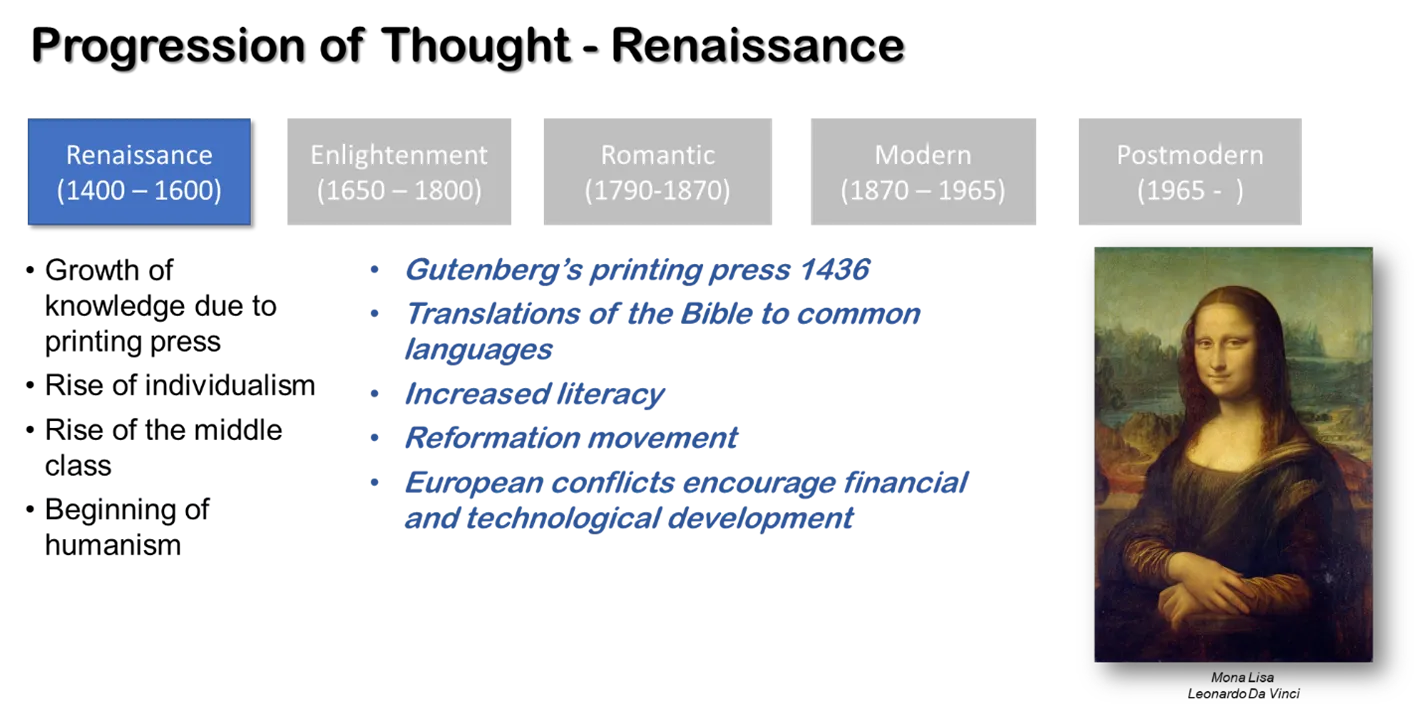
Figure 1: Broad Characteristics of the Renaissance
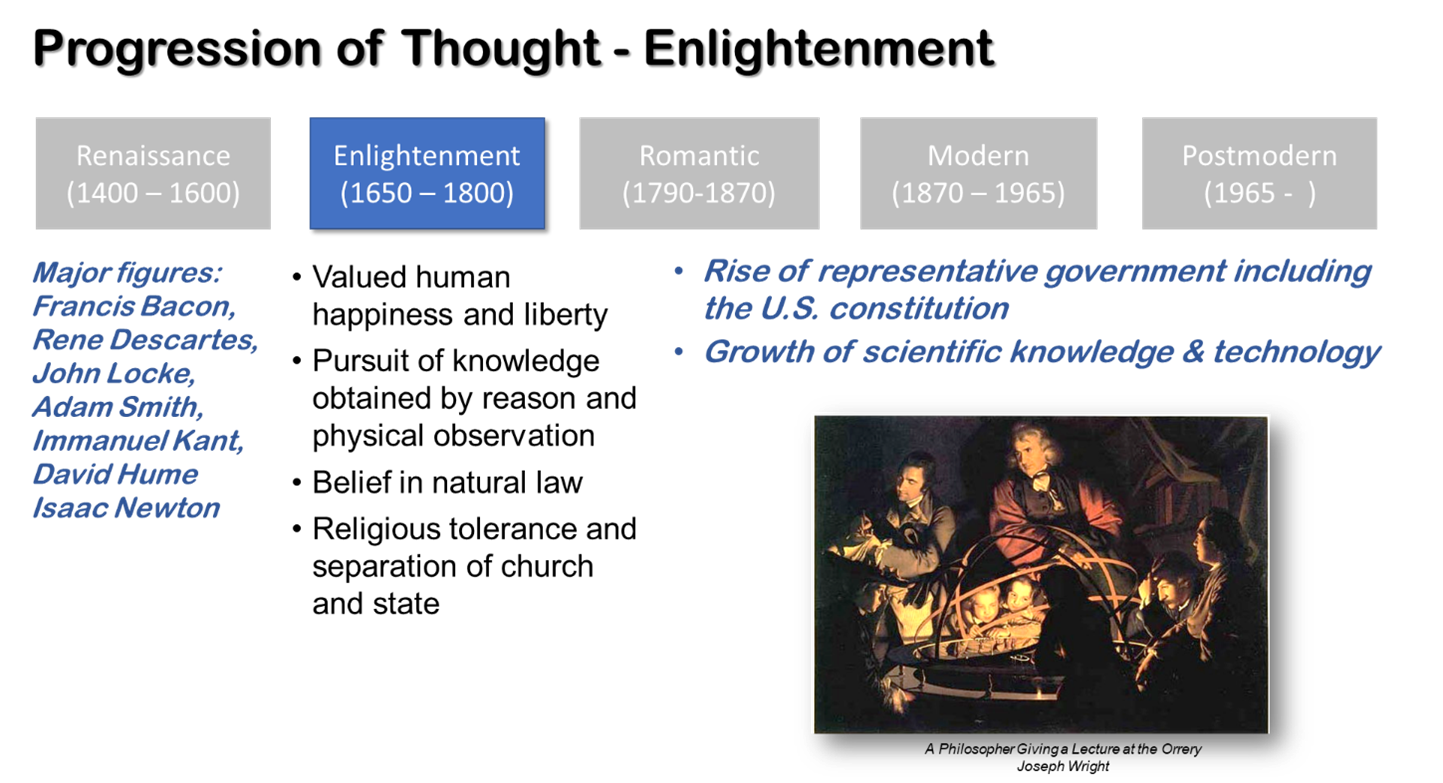
Figure 2: Broad Characteristics of the Enlightenment Period
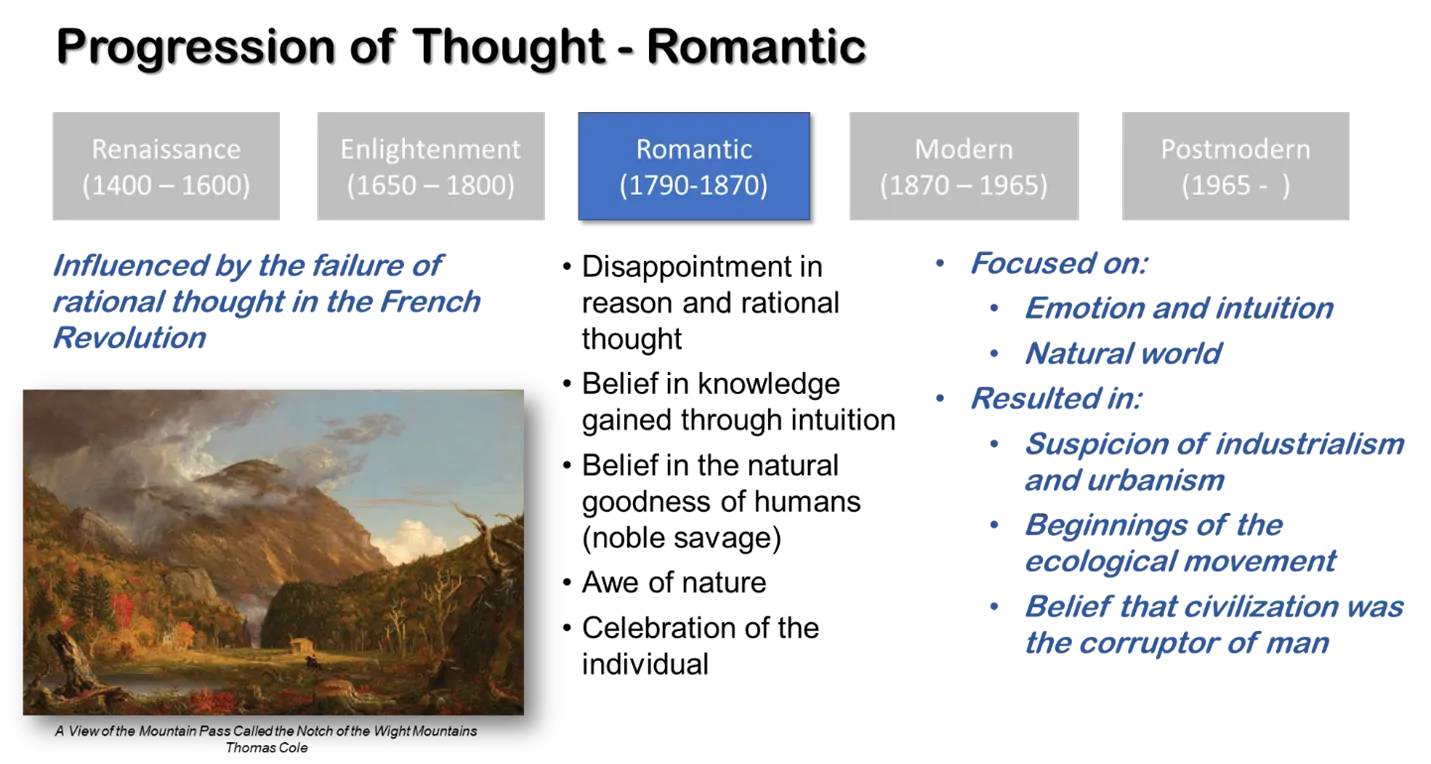
Figure 3: Broad Characteristics of the Romantic Period
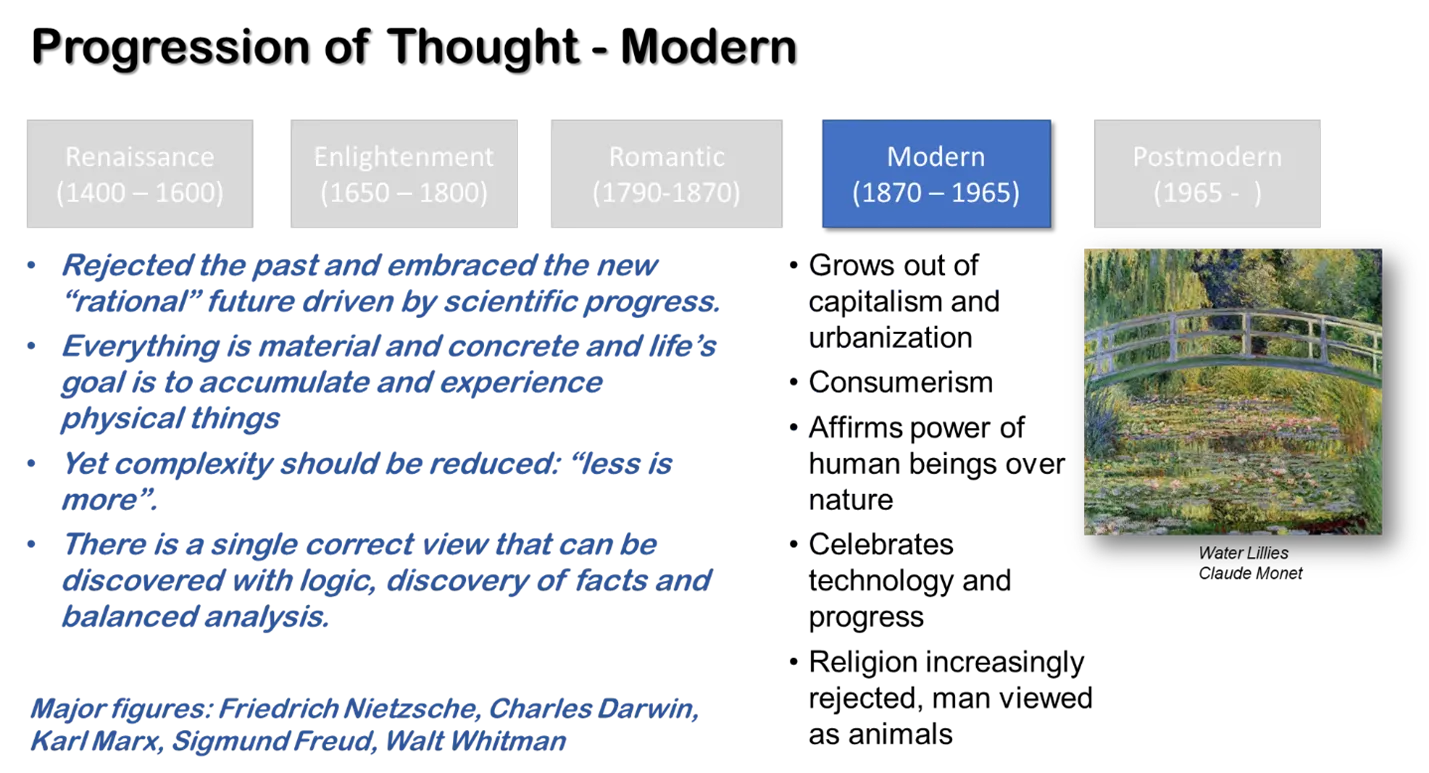
Figure 4: Broad Characteristics of the Modernism
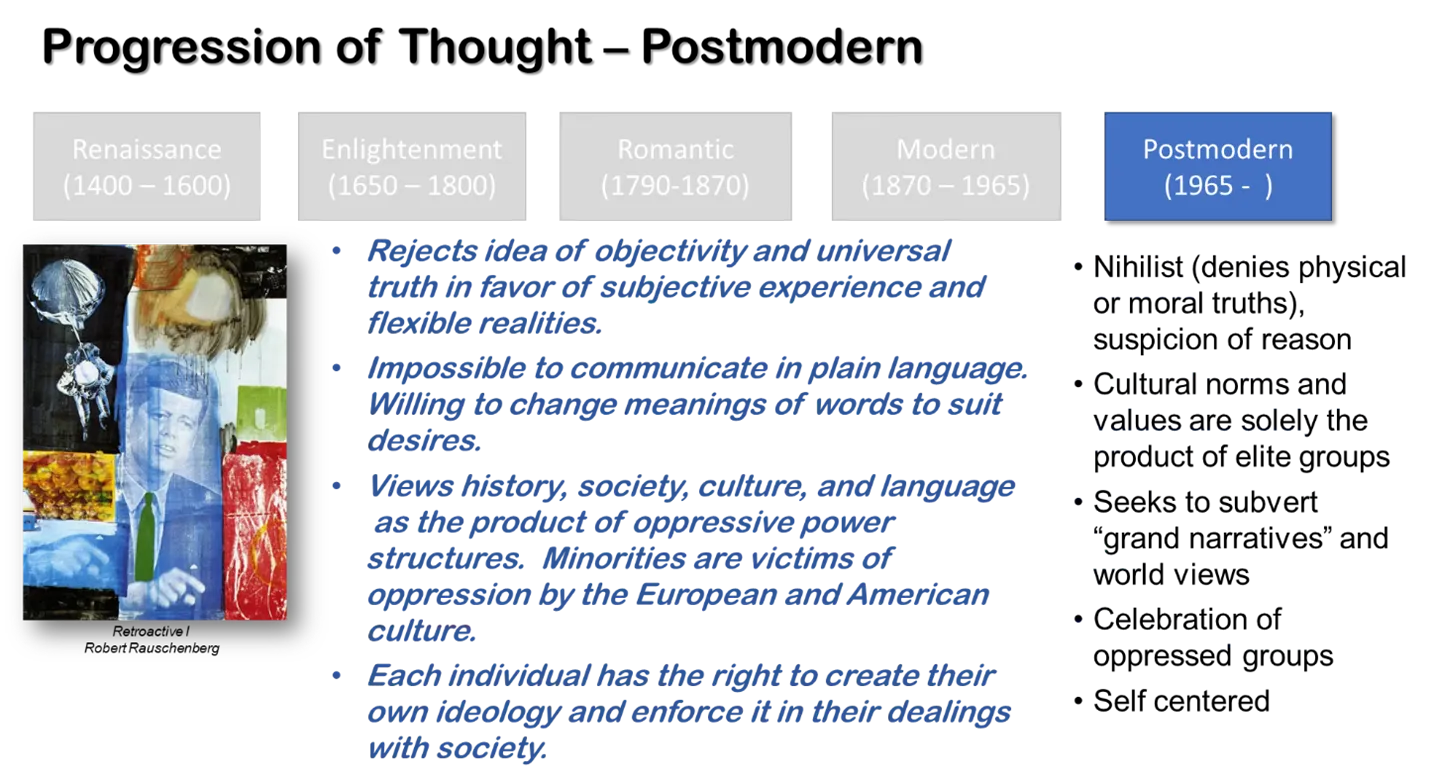
Figure 5: Broad Characteristics of Postmodernism
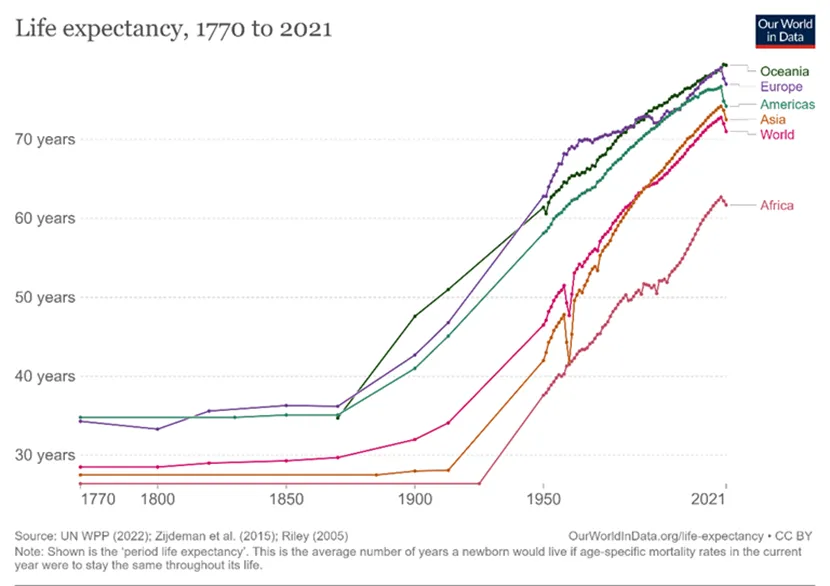
Figure 6: Change in Life Expectancy[5]
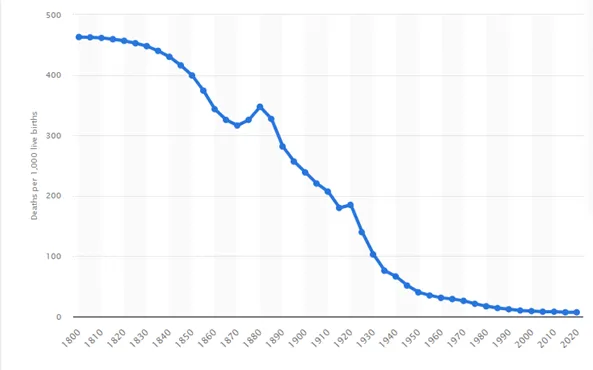
Figure 7: Child Mortality rate (under 5) in the United States[6]
The current Postmodern age is an almost complete reversal of modernism and is at odds with the assumptions and beliefs of the past two millennia. Western civilization is blamed for evils in the world including racism and slavery leading its proponents to reject all the common characteristics of Western thought. Some of the common Postmodern viewpoints include:[7]
• Rejection of objective natural reality, interpreting such views as a kind of naïve realism,
• Denial of Enlightenment faith in science and technology as instruments of human progress, and
• Viewing reason and logic as merely conceptual constructs that are only valid within the established intellectual traditions in which they are used.
History and historians are directly under attack by those who view history as just a set of narratives designed to control one group or another. As Hayden White writes:
historical narratives . . . are verbal fictions, the contents of which are as much invented as found and the forms of which have more in common with their counterparts in literature than they have with those in the sciences.[8]
History is not the only discipline being questioned. Many within the postmodern movement have also attacked the objectivist claims of science:
“(1) that they can describe and analyze, objectively and truthfully, and therefore with a universal application, the physical reality which surrounds us, and
(2) that their scientific inquiry is a disinterested pursuit of truths about reality, which are also universalizable, in that they are true everywhere, quite independent of any merely local cultural constraints, and in particular independent of any of the more or less hidden moral or ideological motivations which may have inspired their discovery.”[9]
To some, there are no universal truths to be discovered and therefore, alternative philosophical approaches are needed. In a written debate between John Searl and Hilary Lawson in the iai news, Searl argued that relativism is inherently contradictory and cannot be used as the basis of inquiry. Responding, Lawson wrote the following:
The incoherence of relativism does not however validate realism. As Hilary Putnam cogently argues, realism has failed in the sense that a century on from Russell’s founding of analytic philosophy there is no credible theory about how language hooks onto the world nor is one on the horizon. Pointing to the evident puzzles inherent in the relativist position does not make realism valid or create a credible realist theory. Nor does the distinction between epistemological and ontological subjectivity and objectivity aid the debate since it already carries within it the assumption that objectivity is possible. .[10]
She then suggests a replacement for realism.
The theory of Closure that I have put forward is one such account. It is not anti-realist, for that would be self-referentially incoherent. It is instead a non-realist or postrealist philosophy. It does not deny the existence of an independent reality but instead proposes an alternative framework that does not rely on realism. It begins from the seemingly unlikely starting point that the world is not a thing or combination of things and instead we should hold it as open. It then proposes that we close the openness of the world and in so doing enable intervention based on our closures. Centrally the framework of closure provides an account of how we can refine our closures and thereby improve our interventions in the world even though our closures do not refer to or describe an independent reality. In so doing the theory of closure provides an account of how the theory itself is possible.
London, further denies objective truth suggesting that even supposedly objective facts (i.e. Rembrandt was born in 1606) by arguing that there are different calendars that would produce different dates for Rembrandt’s birth. Reading past the jargon, we find that Lawson really misses the point. Once a reference system is identified (Gregorian calendar), it is objectively true that Rembrandt was physically born in 1606. We can say with confidence that the gravitational acceleration at the earth’s surface is 9.80665 m/s2, that pure water boils at sea level pressure at 100.0°C, etc. once we establish our units of measure. We may not fully understand gravity and how it is generated, we may recognize that at a higher altitude, water will boil at a lower temperature, and that there are many variables around us that we many not always consider, but there are absolute truths.
Modern science is built upon the assumption that the universe operates based on absolute truths. We go to great detail to measure physical constants, and mathematically determine the relationships between our physical lives and those constants. The fact that those physical constants may vary with location, velocity, or timing does not argue against a realism, it merely indicates that the phenomena is complex. The fact that the gravitational acceleration at the surface of the moon is only 1.62 m/s2 does not invalidate the measurements at the Earth’s surface nor does it argue against realism or objective truth. It just tells us that the physical properties we observe daily are dependent upon other quantities (such as planetary mass).
It is fashionable now for Americans to believe that their society is completely corrupt and therefore all of is philosophical foundations must be rejected. To be blunt, this is shallow thinking built on ignorance of history and the sciences. Has Western civilization accommodated and, on some occasions, encouraged evil. Yes! Have its philosophical principles improved the human condition? Yes! The basic belief systems that led to the Enlightenment have produced longer life spans with less suffering for the whole world. The political principles developed during the Enlightenment also lead to the political and economic freedom of billions. Perhaps the ultimate irony is that the freedom and wealth needed for individuals to attend colleges and be indoctrinated in Postmodernism could only come from the very features of society that they claim to be so corrupt and evil.
It is not inappropriate to discuss the objectively of scientists and how politics and group-think have influenced their evaluation of data and their conclusions. In that respect, postmodernism is a welcome challenge to the uncritical acceptance of the scientific fads. Many of those beliefs such as eugenics and Marxism resulted in the suffering and deaths of millions. Others have caused less harm, but created road blocks that took time and effort to overcome. History tells us that scientific consensus is usually wrong. That is inevitable because understanding complex things is very hard and human nature does not like to admit error and ignorance. Yet, it is much different to reject realism and what most would consider objective truth. This is true for both the “hard” sciences and for history. Again, complexity and human flaws should not lead us to deny that events occurred or that we cannot understand them with any confidence.
Postmodernism’s challenge to religious belief can also be useful. Any unchallenged belief takes on an influence that it may not deserve. Many have used religion (including Christianity) as a mechanism to enrich themselves monetarily, to gain social and political prestige and power, and to simply bully others. Religion, like science, must be continuously challenged. Critical review should be welcomed but not at the expense of mindless rejection.
The belief in absolute truth has blessed the world both physically and morally. Those who reject the fundamental tenets of Western civilization (and its central religious beliefs) are, in their ignorance, rejecting the paradigms that have led to some of the greatest successes in history. They have become so focused on the human faults that are present in any society they ignore the magnificent gifts they have inherited. There are absolute truths to be discovered, both in the physical world and in the spiritual world and we should dedicate ourselves to understanding them.
REFERENCES:
[1] https://ericgerlach.com/thought-absolute-relative-truth
[2] Stanford Encyclopedia of Philosophy; https://plato.stanford.edu/entries/heraclitus
[3] John Clark; “Galileo, The Catholic Church and the Impact on Science”; magiscenter.com
[4] Chris Decaen; “Galileo & the Church”; Lecture presented at Thomas Aquinas College, Aug 27, 2010
[5] UN WPP (2022); Zijdeman et al. (2015), Riley (2005)
[6] www.Statista.com; Aaron O’Neill
[7] Duignan, Brian. "postmodernism". Encyclopedia Britannica, 31 Mar. 2023, https://www.britannica.com/topic/postmodernism-philosophy. Accessed 16 June 2023
[8] Hayden White; “The Historical Text as a Literary Artifact” Tropics of Discourse (1978)
[9] Postmodernism: A Very Short Introduction: 74 (Very Short Introductions) (p. 38). OUP Oxford. Kindle Edition.
[10] iai news, Issue 39, 5 August 2015

